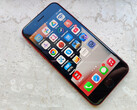Indonesians may soon be able to officially buy the iPhone 16 models again as the country’s Investment Minister has hinted that Apple is willing to invest a substantial sum in the country. The development is a significant one as the Indonesian government has been at odds regarding Cupertino’s investment offers.
Apple initially offered to invest $10 million in Indonesia to clear the ban but the offer was rejected. The company later increased the investment offer to $100 million but to no avail. Reuters reports that the Indonesian Investment Minister has claimed that Apple is expected to commit to a whopping $1 billion investment in a week's time. If true, this would be a 10x increase over the company’s previous $100 million offer.
Why is the iPhone 16 banned in Indonesia?
The Indonesian authorities banned the sales of the iPhone 16 for a simple reason: Apple didn’t invest the required capital as stipulated by the country’s “Local Content Requirement” or LCR. As a result, sales of the iPhone 16 models were banned.
Indonesia’s Local Content Requirements stipulate that for a foreign smartphone maker like Apple, devices like the iPhone 16 must comprise at least 40% locally produced components. Since Apple has no local manufacturing in Indonesia and reportedly relies on its developer academies to meet the LCR quota, the iPhone 16 doesn’t meet the 40% requirement.
The expected $1 billion investment is a way for Apple to get back into the Indonesian market. But the company has to make a deal quickly since, per Reuters, the country plans to increase the LCR requirement for smartphones to above 40%.
Finally, like the iPhone 16, Google’s latest Pixel 9 phones are also banned in Indonesia. However, there is no indication whether Google is negotiating any deals with the country.
Source(s)
Reuters, Teaser image: Apple, TheDigitalArtist on Pixabay, edited















